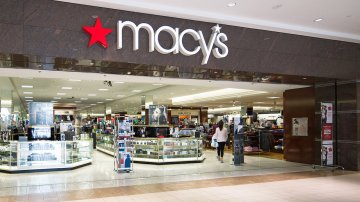For U.S. right-wing politicians and pundits, this has been the summer of attacking what they consider to be “woke brands.”
Frequently invoking the phrase “go woke, go broke,” members of the party claiming to love free-market capitalism spent Pride month pushing boycotts against companies they deemed too inclusive to LGBTQ+ customers. In July, they took aim at companies’ environmental and social governance programs by using big-government tactics to deter private companies from addressing environmental and social issues.
But as Republicans’ attacks on brands for corporate social responsibility have expanded from punditry to policy, beauty companies are proving resilient against right-wing attempts to financially punish companies for expressing values in line with what their customer base expects.
On July 28, L’Oréal Group’s earnings presentation showing 13.3% growth for the first half of 2023 prominently featured its ESG score in the main bullet points. And E.l.f. Beauty, which has been vocal about reproductive rights, reported 76% net quarterly sales growth in August.
E.l.f. Beauty’s willingness to take a stand on social issues has been beneficial to its standing with a Gen-Z customer base. “We stay true to our mission,” said E.l.f. Beauty CFO Mandy Fields. “We’re all about diversity and inclusion, across the board. And that’s just true to who we are. It goes back to the authentic point and why our community and Gen Z are so in favor of E.l.f., [which is] because we are not afraid to take a stand on issues.”
This tracks with data on younger consumers’ demands, including a March 2023 McKinsey study which found that 73% of Gen Z strives to buy from brands they consider ethical.
In October 2022, E.l.f. Beauty joined over 30 beauty companies participating in the Every Body Campaign launched by Saie founder Laney Crowell. The focus was raising money for the reproductive rights organization SisterSong, following the overturn of Roe V. Wade.
“We are primarily profiting from women. To not be standing up for women’s rights is nuts,” said Crowell.
Crowell has used her brand’s platform to support a range of environmental and social causes. For Mother’s Day in May 2023, on its site and social channels, the brand shared an interview with gun-reform activist Emily Barth. It also made a donation to Everytown for Gun Safety.
For Crowell, the argument that beauty brands should just “stick to makeup” rings hollow.
“All businesses are very involved in politics,” she said. “Gun companies have lobbyists. Every category has a business that is extremely involved in, if not completely manipulating, politics. To say ‘Stick to selling lipstick’ is just a joke. That’s not how our political system works, unfortunately. So there’s no reason why, if other industries are involved, beauty shouldn’t be.”
She said, apart from trolls on the brand’s Instagram account, it has only seen positive results from taking a stand.
“Just because someone’s the loudest, that doesn’t mean that they’re having the most impact,” said Crowell.
Right-wing cancel culture against brands for being inclusive or speaking out on social issues has not had a financial impact on beauty like it has in the beer category. Bud Light saw a sales decline in the second quarter, owed to anti-trans vitriol after it sponsored a one-minute social ad by influencer Dylan Mulvaney. But similar attempts to organize a boycott against Maybelline for working with Mulvaney fell flat. Maybelline was listed as a top driver of growth in L’Oréal Group’s most recent financial report. Overall, these right-wing boycott attempts don’t generally affect brands in the long run, as Keurig and Nike have shown.
As many boycotts have fallen flat, right-wing tirades against brands for supporting diversity, sustainability or LGBTQ+ rights have been joined by a new tactic: legislation efforts.
After attacking multiple companies for Pride campaigns in June, House Republicans deemed July “ESG Month,” due to the many hearings and federal legislation proposals based on companies’ social responsibility efforts.
“This whole kind of crusade about anti-ESG is just a political theater. They don’t actually understand what they’re saying. They’re not actually talking about investing. They’re just trying to create misinformation,” said Andrew Behar, CEO of corporate accountability non-profit As You Sow.
Conservative groups have called ESG a part of the “woke mob’s agenda,” and legislators in over 20 states have proposed or passed laws banning ESG considerations in the use of state investment funds. In Florida, a Ron DeSantis-appointed board governing Disney’s tourism district banned DEI programs on August 1, while laws banning DEI efforts at public colleges were signed in both Texas and Florida earlier this year.
L’Oréal Group’s first-half earnings report boasted an ESG rating of 85 out of 100 from credit-rating firm Standard & Poor. ESG reports have become common at publicly traded companies, as these efforts have been deemed “material” to shareholders’ interests, said Behar.
“ESG is just a framework for assessing risk. Everybody’s using ESG in some form,” said Behar. “A higher score indicates a lower risk profile.”
Behar said these anti-ESG initiatives are being run by a small group of dark money-funded individuals, saying they reflect “very heavy-handed big-government tactics to tell businesses how to run their businesses.” They also represent a break from conservatives’ typical focus on deregulation, when it comes to corporations.
These laws are about “disallowing you to use tools to make smart decisions,” said Behar, who predicted that those signed into law by conservative governors “will certainly be overturned.”




